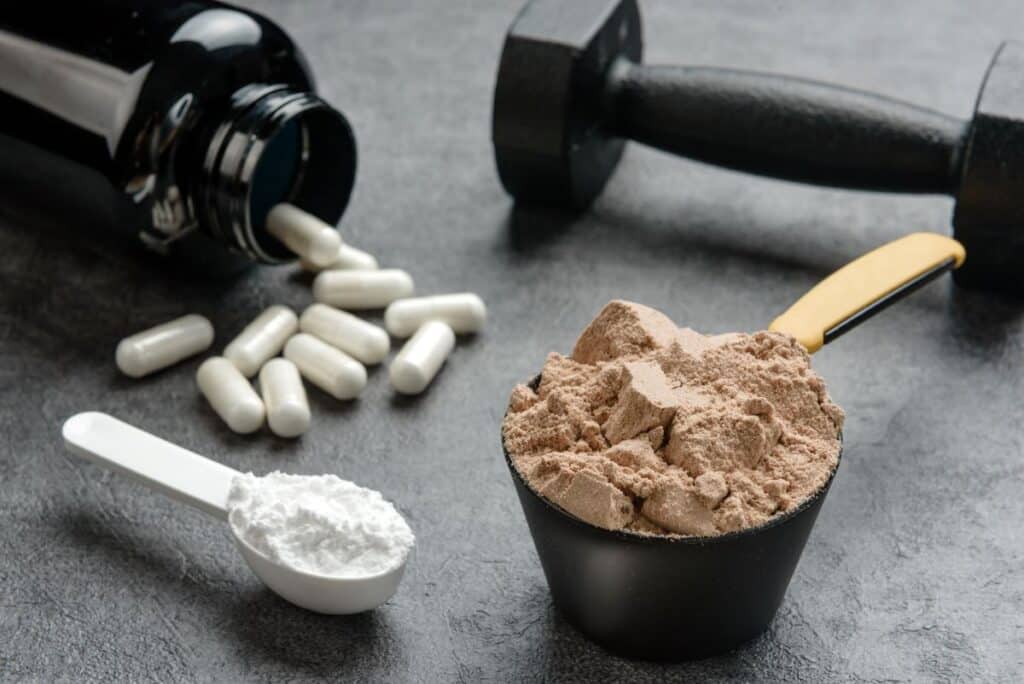Pre-Workout Supplements: Your Ultimate Guide to Safety and Efficacy

Pre-workout supplements have become popular among those on a quest to find the ideal training partner in a world where fitness objectives are as diverse as the people who set them. Though they claim to increase performance, stamina, and focus, how much is actually known about these stimulating formulas? Let’s explore pre-workout and address the important question: Is it safe?
What is Pre-Workout?
Pre-workout is a substance made to offer you an advantage when working out. Pre-workout supplements are usually sold as powders that you mix with water and drink before working out. The purpose of the mixture is to boost energy, focus, and endurance. Helping you push harder, for longer, and get the most out of each workout is the aim.
Common Ingredients in Pre-Workouts
The ingredient list can vary widely between brands and formulas, but some common components include:
Caffeine:
Known for its energy-boosting properties, caffeine is a staple in many pre-workouts. It can enhance alertness and delay fatigue.
Creatine:
Often included for its ability to improve performance in high-intensity workouts.
Beta-Alanine:
This amino acid can help combat muscle fatigue, allowing for longer, more intense workout sessions. It’s important to note that there can be some pretty intense side effects of this amino acid. Beta-alanine can cause skin paresthesia including itching and tingling after consumption. Scientists and researchers don’t have a definitive answer for what causes beta-alanine tingling, but there are theories that say beta-alanine activates g-protein-coupled receptors, which are responsible for transmitting signals throughout your central nervous system, especially on the skin. In other words, beta-alanine fires up your nerve endings in a way that causes tingling and itching.
Nitric Oxide Precursors (e.g., L-arginine, L-citrulline):
These compounds help improve blood flow, which can enhance exercise performance and recovery.
BCAAs (Branched-Chain Amino Acids): Essential for muscle recovery, BCAAs are included in some pre-workouts to support muscle repair and growth.
Is Pre-Workout Safe?
The million-dollar question revolves around safety. The short answer is: It depends. For many people, pre-workout can be a safe addition to their fitness regimen, but there are several factors to consider:
1. Ingredient Quality and Transparency
Pre-workouts are not made equally. Choose goods from respectable companies that are open about the contents and doses of their items. Completing your investigation is essential because the supplement sector is not as strictly regulated as the pharmaceutical industry. For example, research shows numerous cases of adverse events and potential side effects related to an ingredient called synephrine in many prework out supplements.
2. Your Health Status
Certain pre-workout substances, especially stimulants like caffeine, can have adverse effects on specific health conditions, such cardiac problems or hypertension. It’s advisable to speak with a healthcare professional before beginning any new supplement regimen.
3. Dosage and Tolerance
The body’s tolerance to substances like coffee varies greatly throughout people, even within acceptable limits. To determine your tolerance, start with a lesser dose and don’t exceed the suggested dosage.
4. Potential Side Effects
The body’s tolerance to substances like stimulants varies greatly throughout people, even within acceptable limits. To determine your tolerance, start with a lesser dose and don’t exceed the suggested dosage. Some potential side effects include jitters and anxiety, insomnia, increased heart rate, digestive issues, tingling or numbness, dehydration, headaches, and dependency.
The Bottom Line
Pre-workout supplements can be a valuable tool for enhancing workout performance, but their safety and efficacy depend on responsible use, quality ingredients, and individual health considerations. As with any supplement, it’s essential to approach pre-workout with a balance of enthusiasm and caution—armed with knowledge and professional advice to ensure that your fitness journey is both effective and safe.
Whether you’re a seasoned athlete or just starting your fitness journey, understanding the role of supplements like pre-workout can help you make informed decisions about your health and wellness. Remember, supplements are just one piece of the puzzle; a balanced diet, regular exercise, and adequate rest are foundational to achieving your fitness goals.
References:
Cleveland Clinic. (2024, March 19). Is pre-workout powder safe? does it work? https://health.clevelandclinic.org/does-taking-a-pre-workout-actually-work
de Jonge, M. L., Kieviet, L. C., Sierts, M., Egberink, L. B., & van der Heyden, M. A. (2023). Review of case reports on adverse events related to pre-workout supplements containing synephrine. Cardiovascular Toxicology, 23(1), 1–9. https://doi.org/10.1007/s12012-022-09777-z
Jagim, A. R., Camic, C. L., & Harty, P. S. (2019b). Common habits, adverse events, and opinions regarding pre-workout supplement use among regular consumers. Nutrients, 11(4), 855. https://doi.org/10.3390/nu11040855
Liu, Q., Sikand, P., Ma, C., Tang, Z., Han, L., Li, Z., Sun, S., LaMotte, R. H., & Dong, X. (2012). Mechanisms of itch evoked by β-alanine. The Journal of Neuroscience, 32(42), 14532–14537. https://doi.org/10.1523/jneurosci.3509-12.2012







